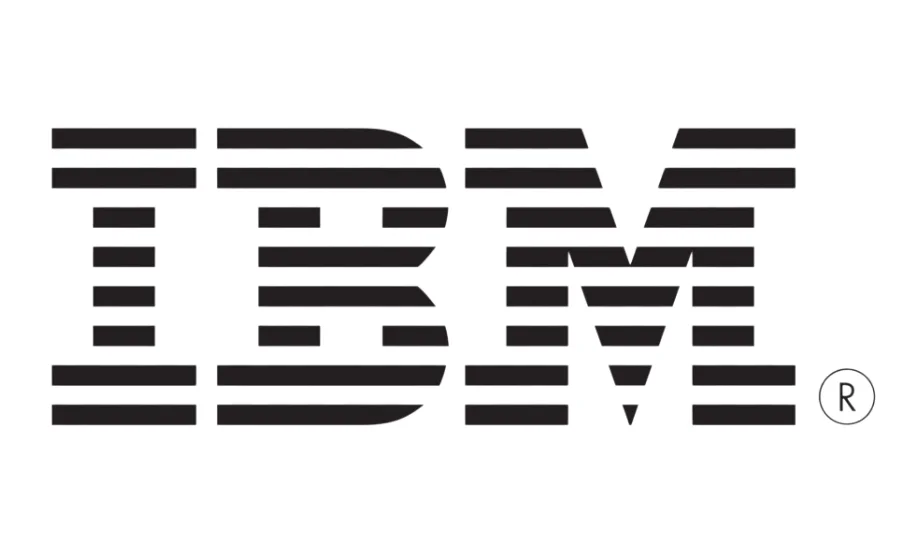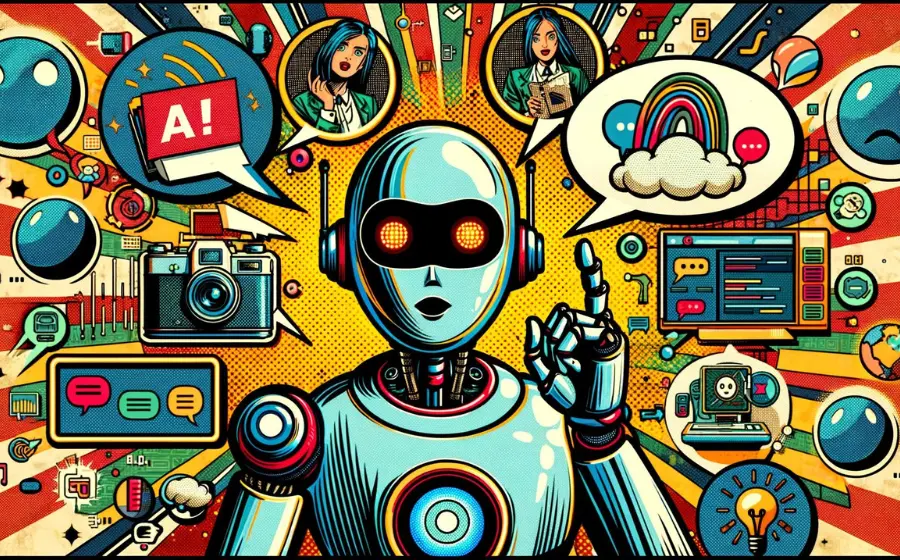
KEYTAKEAWAYS
-
AI is reshaping global industries by enhancing efficiency, solving complex problems, and driving innovation, making companies like Nvidia key beneficiaries.
-
AI applications are diverse, ranging from intelligent document processing to predictive maintenance, significantly improving operational efficiency across sectors.
-
Ethical and legal considerations are becoming crucial as AI technologies integrate deeper into everyday business practices and personal life.

CONTENT
The emergence of ChatGPT has sparked a global investment frenzy in AI, prompting questions around the world about the potential changes AI could bring to human civilization. Concurrently, related industries are actively expanding their investments, hoping to catch the technological revolution train. Among them, GPU giant Nvidia is seen as the biggest beneficiary of generative AI, delivering impressive performances and stock values while driving the performance of the global industry chain.
But what exactly is AI, and in which industry sectors can it be applied? What companies should investors keep an eye on? Today, we will understand all these aspects in one go.
WHAT IS AI?
Artificial Intelligence (AI) is a field of computer science dedicated to solving common cognitive problems associated with human intelligence, such as learning, creativity, and image recognition.
Companies gather vast amounts of data from various sources, including smart sensors, artificially generated content, monitoring tools, and system logs. The goal of AI is to create self-learning systems that can extract useful information from data. Then, AI can apply this information to solve new problems in ways that mimic human actions. For instance, AI technology can engage in meaningful conversations with humans, create original images and texts, and make decisions based on real-time data inputs.
Organizations can integrate AI capabilities into their applications to optimize business processes, enhance customer experiences, and accelerate innovation. Here are some practical cases for AI applications.
- Solving Complex Problems
AI technology uses machine learning and deep learning networks to solve complex problems with human-like intelligence. AI can also process information on a large scale, including pattern digestion, information recognition, and providing solutions.
- Enhancing Business Efficiency
Unlike humans, AI can work around the clock while maintaining performance. In other words, AI can precisely perform repetitive and tedious tasks, allowing human resources to be allocated to other business areas. This reduces employee workload and simplifies business operations.
- Making Informed Decisions
AI can analyze vast amounts of data faster than any human using machine learning. AI platforms can identify trends, analyze data, and provide directives. Through data prediction, AI can help recommend the best course of action for future activities.
- Automating Business Processes
AI can be trained with machine learning to perform tasks quickly and accurately, automating parts of the business that are difficult or tedious for employees, thereby improving operational efficiency.
WHAT IS THE PRIMARY USE OF AI AMONG US COMPANIES?
AI applications are incredibly diverse, and primarily categorized into several major types:
1. Intelligent Document Processing (IDP)
IDP transforms unstructured document formats into usable data. For example, this technology can convert enterprise documents such as emails, images, and PDFs into structured information.
2. Application Performance Monitoring (APM)
APM involves using software tools and telemetry data to monitor the performance of critical business applications. AI-based APM tools use historical data to predict issues before they occur.
3. Predictive Maintenance
AI-enhanced predictive maintenance technologies use large amounts of data to identify issues that might cause operations, systems, or services to shut down.
4. Medical Research
The medical research field uses AI to streamline processes, automate repetitive tasks, and handle vast amounts of data. You can use AI in medical research to help drive end-to-end drug development, transcribe medical records, and shorten the time to market for new products.
5. Business Analytics
The field of business analytics uses AI to collect, process, and analyze complex data sets. You can utilize AI analytics to predict future values, understand the fundamental meanings of data, and reduce time-consuming operational procedures.
6. Smart Cities and Autonomous Driving
AI will further drive the development of smart cities, from traffic management to optimizing public safety and energy use. The maturation of autonomous driving technology will significantly change our transportation systems, enhancing road safety and reducing traffic congestion.
- Read More About Smart Cities
7. Collaboration between Humans and Robots
The future workplace will see closer collaboration between humans and robots. Robots will not only undertake labor-intensive tasks such as heavy lifting but will also assist in data analysis and decision support.
8. Intelligent AI Assistants
As voice and language processing technologies advance, AI assistants will become more intelligent and reliable, better understanding and predicting users’ needs, thereby providing more personalized services.
9. Ethical and Legal Issues of AI
As AI applications become increasingly widespread across various industries, their ethical and legal issues will also become particularly important. Ensuring the fairness, privacy protection, and security of AI will be key challenges.
TOP 10 AI COMPANIES TO INVEST IN
1. Google

As one of the world’s largest internet companies, Google actively promotes the application of AI technology in fields such as search engine optimization, voice assistants, and automated ad placements.
- Read More About Google’s Stock
2. Amazon

Amazon uses AI technology to enhance the efficiency and personalized service of its e-commerce platform, including recommendation systems, inventory management, and logistics optimization.
3. Facebook

Facebook offers a personalized social media experience through machine learning and natural language processing technologies, also used in ad targeting and content filtering.
- Read More About Meta’s Stock
4. Tesla

Tesla is a leading manufacturer of self-driving cars, using advanced AI technology for autonomous driving and intelligent vehicle control.
5. IBM

IBM leads in enterprise-level AI solutions, offering the Watson AI platform applied in industries such as healthcare, finance, and manufacturing. IBM continues to acquire AI companies, including Databand.ai, Turbonomic, ReaQta, MyInvenio, and WDG Automation.
6. Microsoft

Microsoft’s Azure cloud platform provides a wealth of AI tools and services that help enterprises achieve data analysis, natural language processing, and machine learning capabilities.
7. Adobe

Adobe’s generative AI is a newer development; this technology uses extensive data for training to produce automatically generated materials, assist in tool adjustments, create new graphics, unlock unlimited color combinations, fill colors, or expand images.
8. Arista

Building a data center to handle generative AI apps requires significant computing power, the reason for the soaring demand for Nvidia GPUs. However, it also necessitates a method to allow all parts of a data center to communicate with each other, which is where Arista’s networking equipment comes into play.
9. Cloudflare

By building a global data center network, Cloudflare protects websites from threats and ensures that online content is quickly available to users. The company’s Cloudflare One for AI is a cloud-based security solution designed for generative AI applications. It integrates powerful security features, including DDoS attack defense, network firewall, data encryption, and access control, providing comprehensive security for AI applications.
10. Salesforce

Salesforce’s Einstein GPT is developed using the technology of the OpenAI language model team. It helps sales teams send personalized emails to clients, automatically answers FAQs, and even assists developers in writing programs.
Additionally, Einstein GPT can be used to enhance the efficiency of customer service and marketing. It can automatically generate sales tasks, such as scheduling meetings and preparing for the next interaction, generate personalized seat chat replies, dynamically generate personalized content, and attract customers and potential clients through email, mobile devices, web, and advertising.
AI’S FUTURE AND DEVELOPMENT
As technology advances, AI is increasingly visible in everyday life, making AI engineers a highly sought-after job position. AI engineers must have programming skills, crawling and data cleaning abilities, image/text recognition capabilities, and statistical and machine learning skills. Their work focuses on data collection and analysis, designing neural networks tailored to system needs, analyzing the accuracy and error rates of practical applications, and even developing network model theories and algorithms.
In addition to AI engineers, the future will inevitably see “human-machine collaboration”—humans and intelligent machines or computers working together in our work areas. This collaboration will completely transform the way we work through the efficiency of artificial intelligence, enhancing and augmenting human capabilities.
Through this collaborative intelligence, humans and AI can enhance and complement each other. Human strengths include leadership, teamwork, creativity, and social skills; artificial intelligence has speed, scalability, and quantification ability. These capabilities are essential for future enterprises.
Looking for the latest scoop and cool insights from CoinRank? Hit up our Twitter and stay in the loop with all our fresh stories!

















